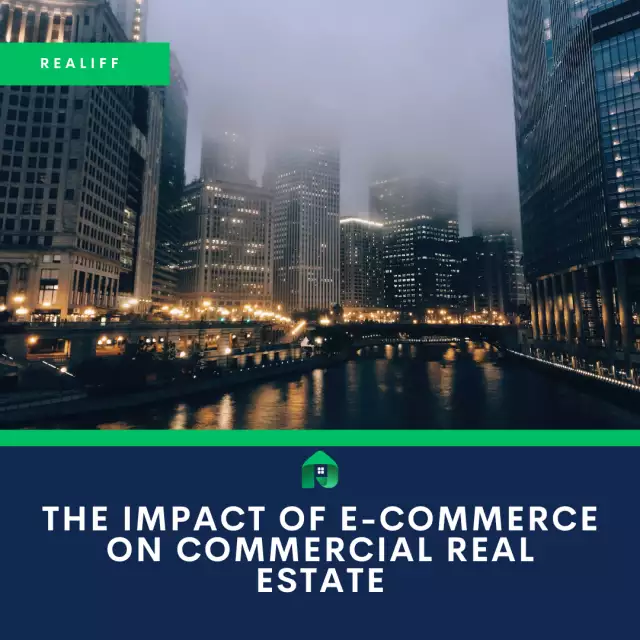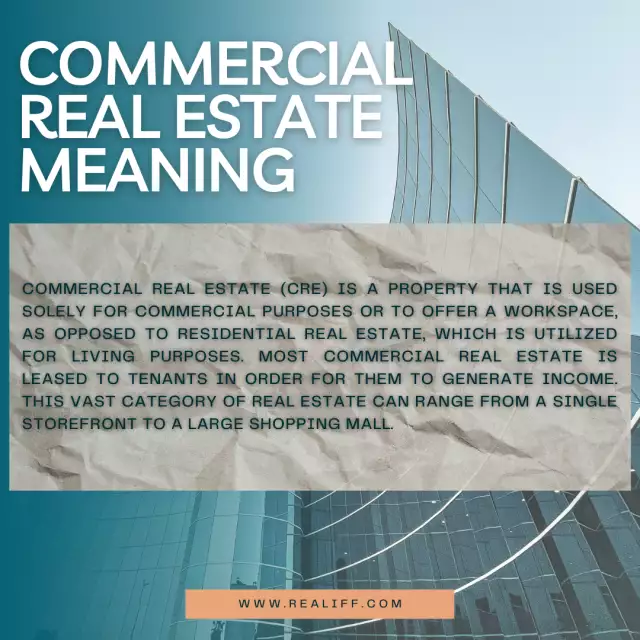Maximizing Returns in Commercial Real Estate Investment
Maximizing Returns in Commercial Real Estate Investment
Commercial real estate investment is a lucrative yet complex arena, encompassing properties used for business purposes such as office buildings, retail centers, warehouses, and hotels. These assets can generate significant income for investors but also present unique challenges. This comprehensive guide delves into the various types of commercial real estate, market-driving factors, and effective strategies for success in this dynamic industry.
Types of Commercial Real Estate
Office Buildings
Office buildings are a staple in the commercial real estate sector. They range from small single-tenant structures to towering skyscrapers housing multiple businesses. The leasing options vary widely, catering to a broad spectrum of business needs and contributing to their investment appeal. The right office space can attract prestigious tenants and provide steady, long-term rental income.

Retail Centers
Retail centers, including shopping malls and strip malls, are designed to attract consumer foot traffic. These properties are often leased to a variety of retailers and can command high rental rates, especially in prime locations with significant consumer draw. However, investors must carefully consider location and tenant mix to maximize returns and adapt to the changing retail landscape driven by e-commerce.
Industrial Properties
Industrial properties encompass warehouses, manufacturing facilities, and distribution centers. They are crucial for businesses requiring substantial storage or production space. The rise of e-commerce has boosted the demand for these properties, making them a hot commodity in the commercial real estate market. Investors can benefit from long-term leases and stable tenants in industries like logistics and manufacturing.
Hotel and Hospitality Properties
Hotel and hospitality properties, such as hotels and resorts, provide accommodation and leisure services. These properties can be extremely profitable but require constant upgrades and management to remain competitive and attractive to guests. Successful hotel investments often involve strategic locations, effective marketing, and excellent customer service to ensure high occupancy rates and repeat business.
Factors that Drive the Commercial Real Estate Market
Economic Factors
The broader economic landscape significantly impacts the commercial real estate market. A robust economy typically leads to business expansion and increased demand for commercial spaces. Conversely, economic downturns can reduce demand as businesses contract and cut back on expenses. Investors must stay attuned to economic indicators and trends to time their investments effectively and mitigate risks.
Interest Rates
Interest rates are pivotal in real estate investment. Lower rates reduce the cost of borrowing, encouraging more investments and driving up property prices. Higher rates, on the other hand, increase borrowing costs and can dampen demand, leading to lower property prices. Monitoring interest rate trends and securing favorable financing terms are critical for maximizing returns on investment.
Demographics
Population trends play a critical role in determining the demand for various types of commercial properties. Areas experiencing population growth often see a rise in demand for office, retail, and residential spaces. Conversely, areas with declining populations may struggle with lower demand and higher vacancy rates. Understanding demographic shifts helps investors target high-growth areas and optimize their property portfolios.
Investment Strategies in Commercial Real Estate
Value-Add Strategy
The value-add strategy involves purchasing underperforming properties and enhancing their value through renovations and operational improvements. This can range from cosmetic updates to major structural changes. The goal is to increase the property’s income potential and market value, leading to higher returns. This strategy requires a keen eye for potential and the ability to manage renovations efficiently.
Development Strategy
Developing new commercial properties from the ground up is another strategy. This approach can be highly profitable as it allows investors to design properties that meet specific market needs. However, it comes with higher risks and requires significant capital investment and market insight. Successful development projects often involve detailed feasibility studies and strategic partnerships with experienced builders and contractors.
Income-Producing Strategy
Investing in income-producing properties focuses on generating steady cash flow from rental income. This strategy typically involves buying properties like office buildings, retail centers, or industrial facilities that have long-term leases with stable tenants. Diversifying across different property types and locations can help mitigate risks and ensure consistent income streams.
Profitability of Different Types of Commercial Real Estate
Multifamily Properties
Multifamily properties, such as apartment complexes, often yield high returns due to their ability to generate consistent rental income and appreciate over time. These properties are typically less affected by economic downturns than other types of commercial real estate. Investors benefit from the growing demand for rental housing in urban areas and can capitalize on economies of scale in property management.
Retail Properties
Retail properties can be highly profitable, especially in areas with high foot traffic. However, the rise of e-commerce poses challenges to traditional retail spaces, requiring investors to be strategic about location and tenant mix. Adapting to consumer trends and incorporating experiential retail elements can enhance the appeal and profitability of these properties.
Industrial Properties
The demand for industrial properties has surged with the growth of e-commerce and logistics. Warehouses and distribution centers are critical to supply chains, making them valuable assets with strong income potential. Long-term leases and stable tenant demand contribute to the reliability and attractiveness of industrial investments.

Office Properties
Office properties, particularly in central business districts, can generate substantial income. However, trends like remote work and flexible office spaces are changing how businesses use office space, impacting demand and profitability. Investors must adapt to these shifts by offering flexible leasing terms and modern amenities to attract and retain tenants.
News in Commercial Real Estate
The commercial real estate market is constantly evolving, influenced by economic conditions, technological advancements, and changing business needs. Recent trends indicate a growing emphasis on sustainability and smart building technologies, which enhance energy efficiency and tenant satisfaction. Additionally, the COVID-19 pandemic has accelerated the adoption of flexible workspaces and hybrid office models, reshaping the office property landscape.
A Quote from a Real Estate Expert
"Real estate is not just about property, it's about people. Understanding the needs and aspirations of buyers and sellers is key to navigating the market successfully." - Barbara Corcoran, Real Estate Mogul and TV Personality
Q&A: Commercial Real Estate Investment
Q. What is the difference between commercial and residential real estate?
A.Commercial real estate is used for business activities like office buildings and retail centers, while residential real estate is used for housing.
Q. What are the most common types of commercial real estate?
A.The most common types include office buildings, retail centers, industrial properties, and hotels.
Q. How do interest rates affect the commercial real estate market?
A.Lower interest rates reduce borrowing costs, increasing demand and property prices. Higher rates make borrowing more expensive, decreasing demand and prices.
Q. What are some common investment strategies for commercial real estate?
A.Common strategies include value-add (renovating underperforming properties), development (building new properties), and income-producing (focusing on rental income).
Q. What are some risks associated with commercial real estate investing?
A.Risks include economic fluctuations, changes in interest rates, and potential decreases in property demand. High capital requirements and management costs also pose challenges.
The Most Comprehensive Tips for Commercial Real Estate Investment
- Conduct Thorough Market Research: Understand the local market conditions and trends before making any investment decisions.
- Diversify Your Portfolio: Spread your investments across different types of commercial properties to mitigate risks.
- Focus on Prime Locations: Properties in high-demand areas tend to offer better returns and lower vacancy rates.
- Build Strong Relationships: Establish good relationships with tenants and service providers to ensure smooth operations.
- Stay Updated on Economic Indicators: Keep an eye on economic trends, interest rates, and demographic changes that can affect your investments.
- Leverage Professional Expertise: Work with experienced brokers, property managers, and financial advisors to make informed decisions.
- Evaluate Long-Term Potential: Consider the long-term growth and income potential of any property you invest in.
- Prepare for Contingencies: Have a plan in place to handle unexpected challenges, such as economic downturns or changes in market demand.
Conclusion
Commercial real estate investment offers substantial opportunities for profitability and growth. By understanding the different types of properties, the factors influencing the market, and the strategies for success, investors can make informed decisions and maximize their returns. Realiff.com is your go-to resource for navigating the commercial real estate landscape, offering insights, tools, and expert advice to help you succeed. Whether you're looking to expand your portfolio or start investing, Realiff.com empowers you to make confident and strategic investments in the commercial real estate market.







